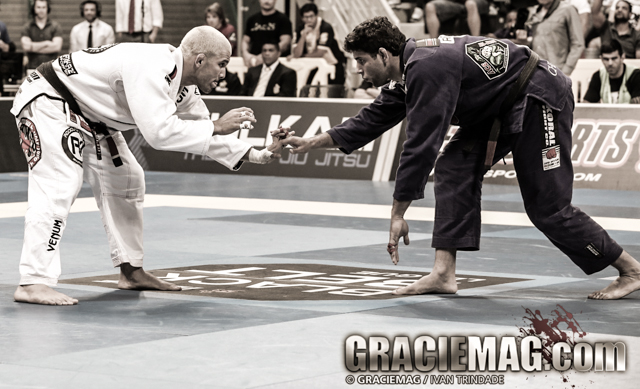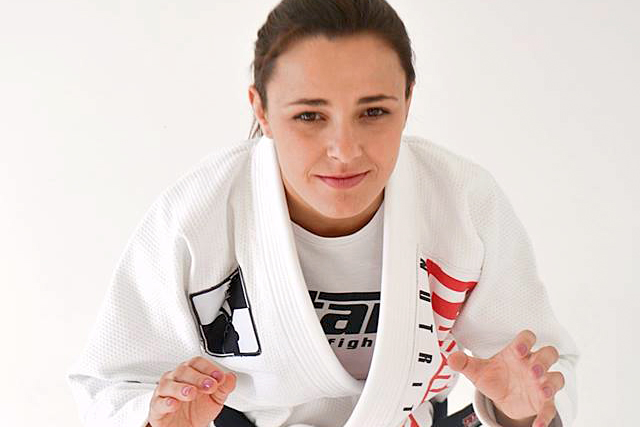
Black belts Rousimar Toquinho and Murilo Bustamante paid a visit to a project where Jiu-Jitsu and martial arts are used as tools for rehabbing criminals in Rio de Janeiro (Praetorian brand publicity photo).
Ever since November of 2011, Complexo Penitenciário Genicinó, a penitentiary complex located in the Bangu neighborhood of Rio de Janeiro City, has been a testing ground for an efficient tool for prisoner rehabilitation—Jiu-Jitsu.
According to an article printed in Brazil’s O Globo newspaper (in Portuguese), over the years the measure has proven successful in the compound, now the largest prison in Latin America, with 18,000 detainees.
To be allowed to frequent the Jiu-Jitsu, boxing and Thai boxing academies on the prison grounds, prisoners have to be studying at the on-site schools, undergo rigorous medicals and, most importantly, not do anything that could go on their record as bad behavior or a transgression over the course of their sentence.
In the Jiu-Jitsu room at Bangu 4 prison, Mioses Julio Bormac, the subsecretary for prisoner treatment and a Jiu-Jitsu black belt, sets an example by himself rolling with convicts—ex-drug dealers, thieves, among others.
“These guys will one day be back on the street. If we don’t provide them with opportunities, it’ll be all the worse for society. They’ll be all the more perverse when they walk out these doors,” the subsecretary says in the article. “I don’t see martial arts as being a stimulus for aggression, but as a philosophy of self-defense and conduct. So far, we haven’t had a single incident involving the detainees. We’re more likely to see a brawl happen during soccer games in the jail yard than during martial arts class,” Moises illustrates.
Teaching Jiu-Jitsu class is the responsibility of Alan Freitas, a black belt from Carlson Gracie academy, and is backed by the likes of Master Sylvio Behring and the Pretorian brand of martial arts gear.
“I’ve been criticized for teaching them Jiu-Jitsu ever since I accepted this challenge,” says Alan. “People think I’m coming here to teach them to fight, providing criminals with weapons. To me Jiu-Jitsu teaches people to change their lives. So long as I have faith in the power of sport, I’ll continue to believe in this work I’m doing.”
Although they were suspicious at the outset, the prison guards have now noted positive changes in the behavior of the prisoners practicing Jiu-Jitsu.




